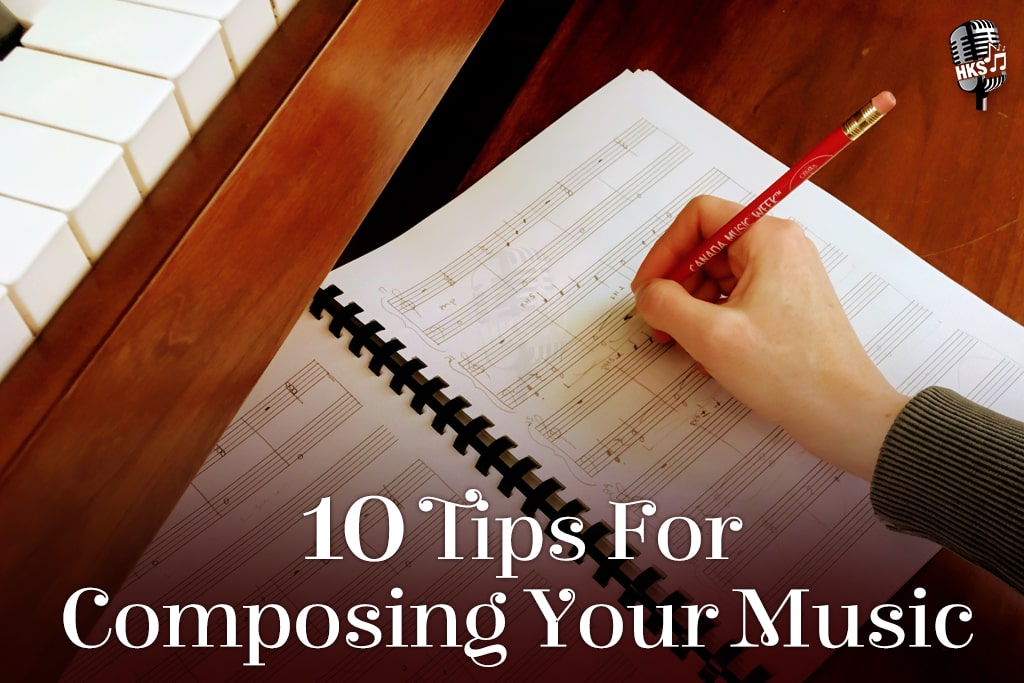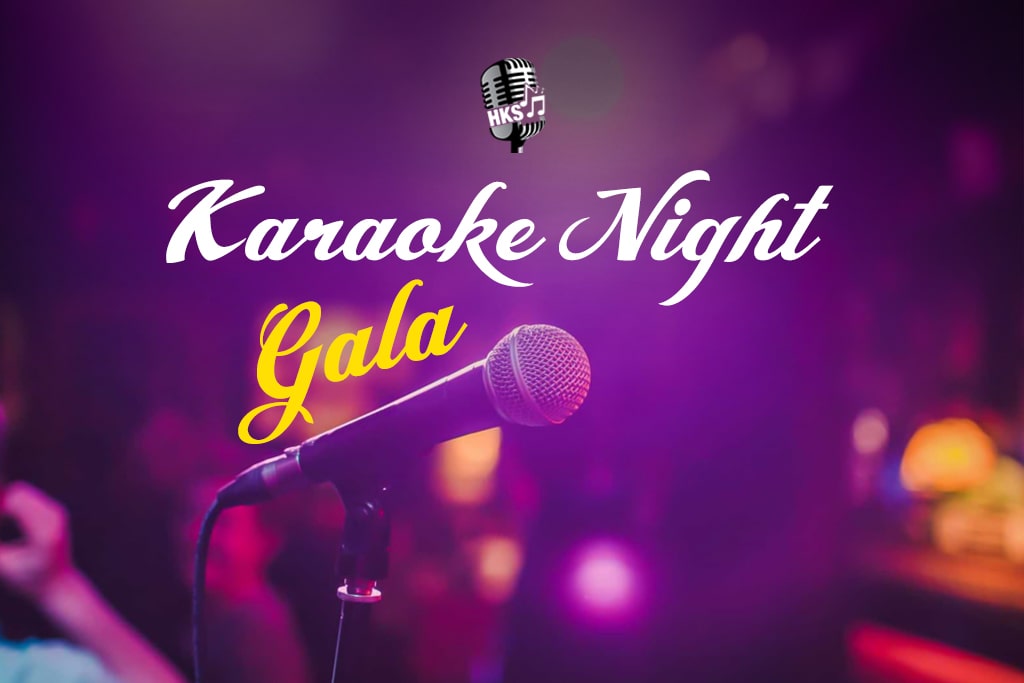Ramzaan Store Wide Sale | 35% Off | USE COUPON CODE - RAMADAN35

Do you want to make your song but struggle with where to start? If yes, then these tips are exclusively for you. Struggling to compose your music, stuck on the starting point, or feeling too lazy to go through an entire music composition course. This blog will provide a step-by-step tool to rule out all your problems. You must look up to your favorite musicians and wonder if you could sing, compose or write like them. This little guide will help you start your journey of composing memorable music. Music Composition refers to producing or making meaningful music with the help of several instruments. Music composition is not the most straightforward job in the music industry. Thus it requires immense hard work and years of practice to master the skill of composing.
As vast as the field of music, so is its history. It takes years for renowned musicians to develop the skills they have. This development can similarly be seen in the field of music. Music has been in the world before people could even speak. Although there were other ways of communication, one such way was music. Music was there in the Vedas, in the Chinese scriptures, and some were way ahead of their time. Music is a crucial part of our traditions. This has been because we include it in every festival and ritual of our society, be it the Songs Of Raksha Bandhan, Diwali, or Christmas. We don't shy away from celebrating the festivals with our favorite songs. Music is not just a part of our society but also our homes. Our late-night jams on Karaoke Songs with our family or jam with our friends during long drives to loud songs are still vivid memory. To make new memories with your family with your original composition, we at Hindi Karaoke Shop have prepared these guiding tips for you to keep in mind while making your masterpiece.
Tips For Composing Music-
You might think how little tips help make a significant difference in our music that would increase our appeal to the audience. However, you might not believe it would make an impact, but it does. Every detail while making music has an enormous impact on the composition, which is why musicians are so meticulous in the details while composing an original tune for the song. Music is the essence of any song, and it is the base or foundation of your music structure. Many artists first make a composition based on that composition. Then, they write lyrics, sing, and do all the post-production work, starting from the composition itself. The tips are neither exaggerated nor are something you wouldn't have heard before. Still, we assure you these tips will help you get a good start and a greater understanding of music. The tips are stated below:
Listening-
Listening to the genre and music you love or even hate patiently before starting your journey in music is essential. Now, I know just listening to music isn't going to make you a master of composing in a single day but hear me out! Listening to every genre and kind of music, from jazz to contemporary to the classics and pop, introducing you to many kinds of music out there would further let you know what you like or don't and would listen to music critically. Listening to all kinds of music will also inspire and let your creativity flow in all areas of composing music and help you get new ideas.
Read Score and Learn Music Theory
Reading score is underrated and under-appreciated. Although many people don't believe in reading scores, it is one of the essential learning experiences in the journey of music composition. It will teach you a valuable lesson every time. The more you learn to explore various dynamics of music, the more you'll read. Analyze more and more scores as you begin your journey through reading. On the other hand, music theory includes everything from notes of rhythm, scale, chords, etc., to notations. Music theory will help you become more informed and learn the basics of music, which will help you gain knowledge for the same.
Learn to Play Instruments and train your senses
Playing instruments is a significant part of making music. It's not about learning music to the level you master it. Still, learning instruments shows your love and interest in music. It brings you closer to not just music but also helps you understand the ordeal of musicians which they go through while playing instruments. The next thing is to train your ears, and you might think, 'how can one do that? The best way to do ear training is to sing the music. No, it's not about training your vocals to be a better composer, but singing tunes even imperfectly while helping you identify notes and mistakes. As you sing, you tend to imagine the music you produce or compose.
Practice and Persistence
Practice is essential to any activity. Practicing every day or writing a bit of music could help you build a routine. This routine will further help you reach your spark and creativity. I know all the days aren't the same, you feel like you're doing good in some while doing worse in others, but that routine will help you excel in the long run. Persistence combined with practice and hard work can help you make small but significant changes in your learning of music composition.
Learning Software and Working for Real
You might find software on the internet that talks about music production but not all glitter is gold. The primary software that you should learn exceptionally well being a composer is Musical Notation Software for producing sheet music such as MuseScore and Finale. Secondly, Digital Audio Workstation or DAW to produce realistic music such as Pro Tools, Cubase, and Logic. Once you learn this software in-depth and grasp them, start working for real musicians and produce and compose music for them. Individual practice is essential on a personal level, but working for musicians will help you gain confidence and understand the music depth and learn, unlearn, and relearn a lot of new things that you might have failed to notice on your own.
Arrange Music
Once you have got hold of the software, try to arrange the music. What exactly needs to be arranged, though? When it comes to arranging, you need to take a piece of music and arrange it or change it for it to be playable on other instruments. Transcribing is a step further. In transcribing, you'll need to transcribe or change the piece being played on other instruments that sounds much like the original piece of music. We at HKS also serve with the service of music arrangement in case you need it for your new composition.
Composing and being Judgemental
After you have learned well, compose your music. The first and basic mistake everyone, especially beginners, makes while composing is that they try to stuff everything they have learned into one composition. You need to understand that you cannot put every score or technique you have learned into a single new song composition as it will sound stuffed and, in most parts, wrong. After this, judge the composition you have made, and when I say judge, I mean to analyse. Analyse your composition. Does it suit the purpose you have made it? Think critically. Does it sound right, or did your technique go wrong?.
Get Yourself a Teacher
After trying out everything on your own, get yourself a composition teacher to take your journey further. The teacher will help you unlearn and relearn many things and will further guide you in the right direction. You can either look for a guide online or go to a class, whichever way you prefer.
Keep in mind the details of your score
It would be best to make sure the details of your score were always top-notch. Even if you think you're not going to perform anytime soon or that you're just learning, especially if you're working with musicians. You need to pay attention to detail in temp, scale, articulation, and expression marks.
Don't obsess over revising an old composition
We have all been there when either the perfectionist in us or the pessimist takes over and redo the task that wasn't up to the mark in our perspective. I know that composition, or anything imperfect, requires revision, but revising endlessly and obsessing over the old composition may make things worse.
The Bottom Line
What matters is that you made an effort to learn and understand your interest patiently and turned your hobby into a passion. Once you adopt these above processes in your daily routine and refuse the don'ts, you'll be able to master the skills. It requires patience, practice, perseverance, and a lot of polishing of your skills. At the same time, you keep all your details of dos and don't in mind and ask questions and doubts to your mentor. The main thing that has a significant impact on going to your desired position is starting your journey to learning. This little guide is a good starter and we at Hindi Karaoke Shop are more than happy to facilitate you with the service of music production, if you need it at any moment.








Sameeksha Agarwal
3 years ago
It has been seven years since I've been working as a professional music composer. I like your blog; it looks like you have done a lot of research on this. I appreciated 👍
Sana Raza
3 years ago
It was a helpful blog and I learned a lot from the guide.
Ritu Raj
3 years ago
True words!!! In order to succeed at anything, you need to practice.
Rishi Roy
3 years ago
My motivation for being here is to learn more about music. This is a very nice blog that you have written.
Manali Nagar
3 years ago
Helpful tips!!! The tips are very helpful for a beginner like me, and I will also use them.
VIDYA SAGAR
3 years ago
Your tips look unique and helpful. All of these I will apply to my next practice class👍
Vikash Suthar
3 years ago
I've read your entire blog and I really enjoyed it; these tips are really helpful. Nice one!
suhani rajput
2 years ago
these tips offer a comprehensive guide for anyone venturing into the world of music composition
Ms Raziya Jessa
2 years ago
Very nice blog,I really enjoyed it;